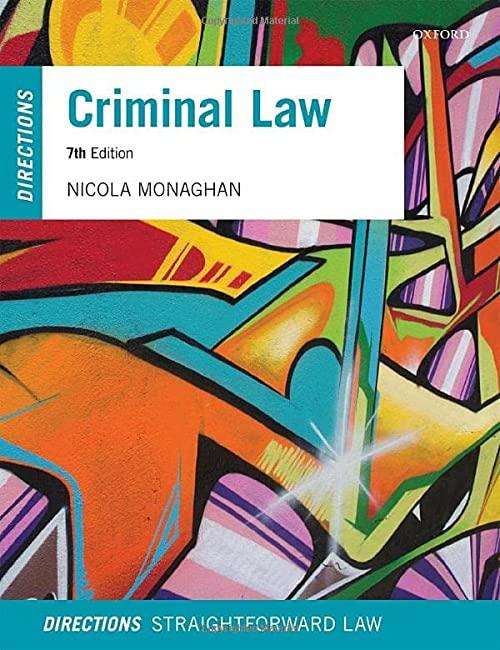Question
1. Marriage is a contract. As such, the parties thereto are free to agree on any marital arrangement they want during their marriage. True or
1. Marriage is a contract. As such, the parties thereto are free to agree on any marital arrangement they want during their marriage. True or False.
2. A contract with a stipulationpour atruiis an exception to the rule of relativity of contracts. Why?
3. A is indebted to B in the amount of P5M. A has no money to pay B, but he has a house worth P3M. Knowing fully well that B might run after said house, he executed a deed of sale to C. However, no real sale actually happened between A and C, as the former continued to occupy the house and no money was actually paid by C. B filed an action to cancel the contract of sale between A and C. C's invokes the relativity of contracts as a defense. Is the defense proper? Explain.
4. What is contractual interference and when is it deemed an exception to the principle of relativity of contract?
5. Heirs of a deceased person may be held liable for the civil obligations that were left behind by the deceased. True or False.
6. Explain the principle of mutuality of contracts and provide at least one (1) example.
Step by Step Solution
There are 3 Steps involved in it
Step: 1

Get Instant Access to Expert-Tailored Solutions
See step-by-step solutions with expert insights and AI powered tools for academic success
Step: 2

Step: 3

Ace Your Homework with AI
Get the answers you need in no time with our AI-driven, step-by-step assistance
Get Started


